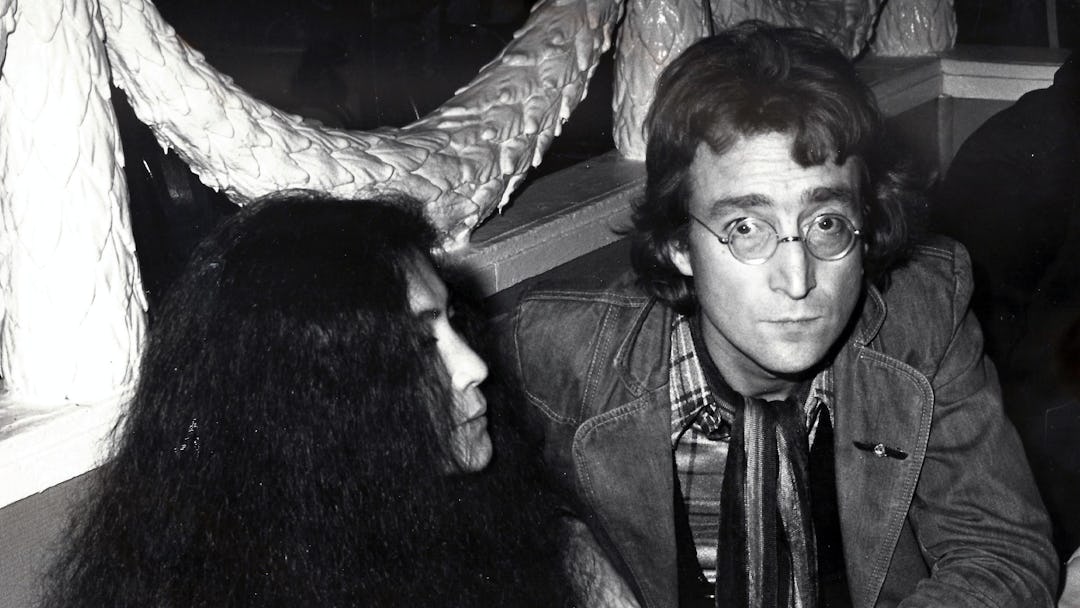“John Lennon was a wife beater” has become a repetitive, if true, refrain in social justice circles. It’s a kind of shorthand, a way of reminding the listener of several things: the cruelty that lies beneath the facade of many revered men; the racial double standard of people who excoriate someone like Chris Brown while ignoring his white counterparts; the misogyny that was and is rampant among famous musicians; and finally, I guess, the hypocrisy of daring to like a simple song like “Imagine” or wishing we could give peace a chance without understanding… what terrible thing, exactly? That a sometimes-violent person yearned for peace?
This “Your fave is problematic!” refrain began as a fair attempt to correct the whitewashed history, but has now become something of a broken record, dull and dogmatic. Today, on what would have been his 75th birthday, or any other time he’s in the news, the “Psst, John Lennon wasn’t so great” posts are as predictable as the “10 Great Lennon Songs” listicles.
Certainly, John Lennon was far from the saint his superfans make him out to be, and there’s no one more frustrating than “stans” of any celebrity (usually white and male, though not exclusively), from Bernie Sanders to the average pop star, who refuse to hear anything negative about their idol. And yet, to say that there’s something shameful in liking Lennon’s music is also profoundly reductive. Just because Lennon did some reprehensible, misogynist, even abusive things in his life doesn’t render “Imagine” (or my personal favorite Lennon songs, “Across the Universe” and “Oh Yoko!”) invalid as works of art. Those songs represented pure and good impulses in their creator, and it’s really OK to treasure that.
My own illusions about Lennon didn’t last long. In fact, I was disabused of any sense that the Beatles were heroes right at the peak of my early-adolescent Beatlemania. I was 12, attending tennis camp, and missing plenty of serves because I was thinking about how dreamy the Beatles were and how amazing their music was, like, oh my god. But I was also insatiably curious, so during lunch I started reading an unauthorized biography of the band and learned a lot of hard truths. They cheated! They bullied! John Lennon beat up his wife and neglected his son. They had God complexes. They were jerks. I also realized, in reading interviews, that no one close to Lennon, from Yoko Ono to Sean Lennon to John himself, has tried to craft a hagiography. His flaws were always out there for all to see — way out there.
That was the beginning and end of my teen-idol stage. Yet onward I ventured, into the Beatles discography and history, grasping that the condescending tone of songs like “Girl,” the early mansplaining of “We Can Work It Out,” the anguish of “Help!,” and the drug-addled nihilism of later songs were genuine expressions of not-so-nice aspects of their creators. But how fascinating it all was.
The same fascination later drew me to music by artists like Eminem and Kanye West, men who set their ids to a musical score and let us see all their inner turmoil, from the most purely sentimental parts to the ugliest parts. So it makes sense to me that Lennon is the Beatle with the biggest fan following. He was clearly tortured, and angry, yet had a longing for something, anything, that would quiet his anger and discontent. This only amplifies his appeal.
Perhaps, when it comes to Lennon’s legacy, we’re scared that someone who behaved so badly nonetheless maintained the power to reach so many people, that his enduring popularity and the cult around his life and death somehow say something horrible about us, or about humanity. I’m not so pessimistic. No one is electing John Lennon to be Speaker of the House today; they’re just choosing to remember his songs, feel the emotions those melodies contain, and mourn the fact that his life and art were cut short by the very thing he abhorred, yet was drawn to: violence.
It’s my hope that eventually we can let Lennon lie peaceably in the realm between “best person who ever lived” and “worst person who ever lived,” remembering him instead as a talented but damaged, and damaging, human being. The reason Lennon’s death still breaks my heart is that he did try to grow and redeem himself despite being stunted in the most primal of ways. He was robbed by a bullet of the chance to continue doing the emotional work that his songwriting partner might call taking a sad song and making it better — and to share that process through his music.
